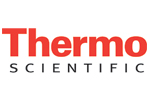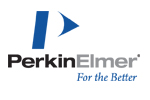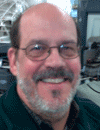08:00 |  Free Workshop Free Workshop
PCR without DNA purification – Thermo Scientific Direct PCR
|
|
Session: Informatics for MS |
| |
09:00 | We’ve Always had Data, so What’s Changed? What’s the Challenge and What’s the Solution?
John Langley, Head of Characterisation and Analytics, University of Southampton, United Kingdom
The question of whether data to knowledge is a new issue is worth considering. Is this a new phenomenon? The answer is definitely no. Is it an issue today? This time the answer is a resounding yes. This presentation considers the origins of the problem, what has changed that now brings the issue to the front. Examples will be used to show that there is a wealth of information in a variety of data from many applications, from a simple mass spectrum, tandem MS, chromatographic and molecular modelling approaches. Finally there will be an attempt to consolidate some of these approaches, together with present software solutions, into a future vision for automated Data to Information to Knowledge. |
|
Session: Trapped Ions |
| |
09:30 |  | Keynote Presentation Current Role of Hyphenated Low and High Resolution Mass Spectrometry in Clinical and Forensic Toxicology.
Hans Maurer, Head, Saarland University, Germany
Concepts and procedures using LC-MS techniques in the areas of toxicology and drug monitoring with special focus on multi-analyte procedures will be presented and discussed. The presentation will close with a short discussion of the potential of high resolution mass analyzers providing excellent identification power. |
|
10:00 | Field Asymmetric Waveform Ion Mobility Spectrometry Combined With Mass Spectrometry for Structural and Trace Analysis
Colin Creaser, Professor of Analytical Chemistry, Loughborough University, United Kingdom
Combining field asymmetric waveform ion mobility spectrometry with mass spectrometry provides complementary separation of gas-phase ions on the basis of differential mobility and mass-to-charge. The combination allows enhance separations of mixtures including the separation of isobaric ions. |
10:30 | Coffee Break and Networking in the Exhibition Hall |
|
Session: Novel Separation Techniques and Methodologies |
| |
11:15 | Comprehensive Drug Metabolite Profiling Using Multidimensional Detection Techniques
Jeroen Kool, Assistant Professor, Vrije Universiteit Amsterdam, Netherlands
The development of on-line and at-line bioaffinity screening in combination with liquid chromatography and mass spectrometry will be discussed towards metabolite profiling. Special focus on bioactivity assessment of drug metabolites and other drug-related compounds in mixtures, generated enzymatically using CYPs and BM3s, electrochemically, and/or (photo)chemically (light/ H2O2), are highlighted. |
11:45 | CANX - Novel Enrichment and Separation Methods for Bioanalysis
Guenther Bonn, Head, University of Innsbruck, Austria
Our research focuses on new developments in integrated sample preparation and separation systems including miniaturized solid-phase extraction (SPE), HPLC and capillary electrophoresis coupled to mass spectrometry. |
12:15 | ![Agilent]() Technology Spotlight: Technology Spotlight:
Ultrafast SPE-TOF Analysis Streamlines Workflow and Enables Native Detection of Complex Analytes.
Jennifer Rossi, Marketing, Agilent
Recent data will be presented that demonstrates the effectiveness of this ultrafast SPE-MS/MS system and its ability to increase laboratory efficiency without disruptions to existing laboratory workflows.
|
12:30 | Lunch and Networking in the Exhibition Hall |
12:45 |  Free Workshop Free Workshop
Glosensor Technology: Intracellular Biosensors to Detect Signal Transduction in Living Cells
|
13:30 |  Free Workshop Free Workshop
Automatic High Content Screening for Life Sciences
|
13:30 | Poster Session |
14:15 | UHPLC – Raising the Pressure in the Laboratory
Tony Edge, Technical Manager, Thermofisher Scientific, United Kingdom
This presentation will initially look at some of the theory associated with this technology to get a clear understanding of why smaller particles are better for HPLC, and to investigate why there are the resulting challenges associated with this technique. From this some discussion will be made on how to convert standard HPLC methodologies to UHPLC methods, using a theoretical approach. There will also be some time spent at looking at the practical implications of running with very efficient chromatographic systems. |
14:45 | New Support Materials for bio HPLC
Peter Myers, Professor, University of Liverpool, United Kingdom
This paper describes two approaches that have been taken in the University of Liverpool to develop new support materials for the analysis of biomolecules by HPLC. |
15:15 | Coffee Break and Networking in the Exhibition Hall |
16:00 | Separation Performance of Modern HPLC Stationary Phases
Attila Felinger, Professor, University of Pecs, Hungary
The study of the mass transfer properties and thermodynamics of retention on modern fully porous and core-shell packing materials reveals the separation power of the latest generation of stationary phases. Results are presented focusing on the tools of stationary phase characterization. |
16:30 | Automation and On-line Hyphenations for Trace Analysis
Steven Wilson, Post Doc, University of Oslo, Norway
I will discuss our approaches to solving volume/solvent/time mismatches with such systems, and some solutions for more robust automation (i.e. avoid clogging when handling complex matrices). |
17:00 | Close of Conference |






